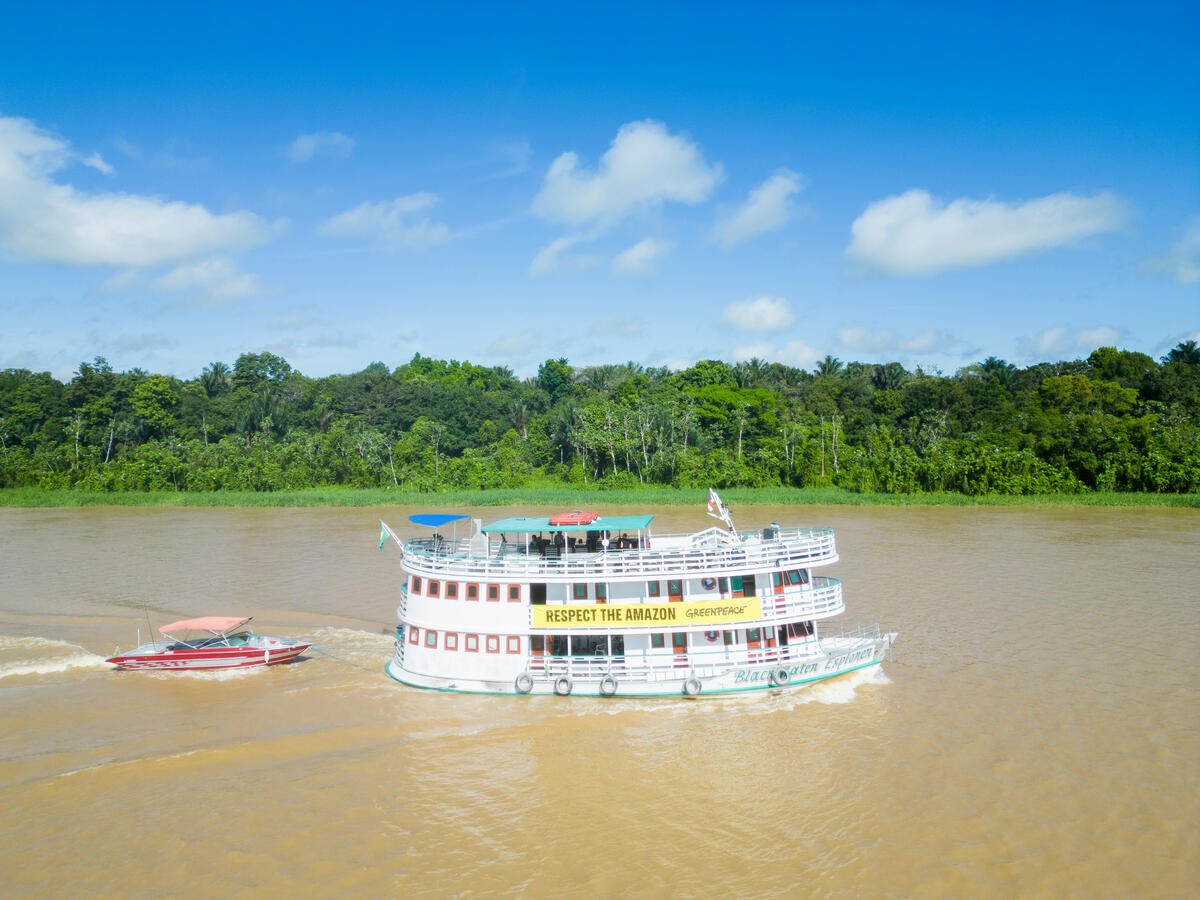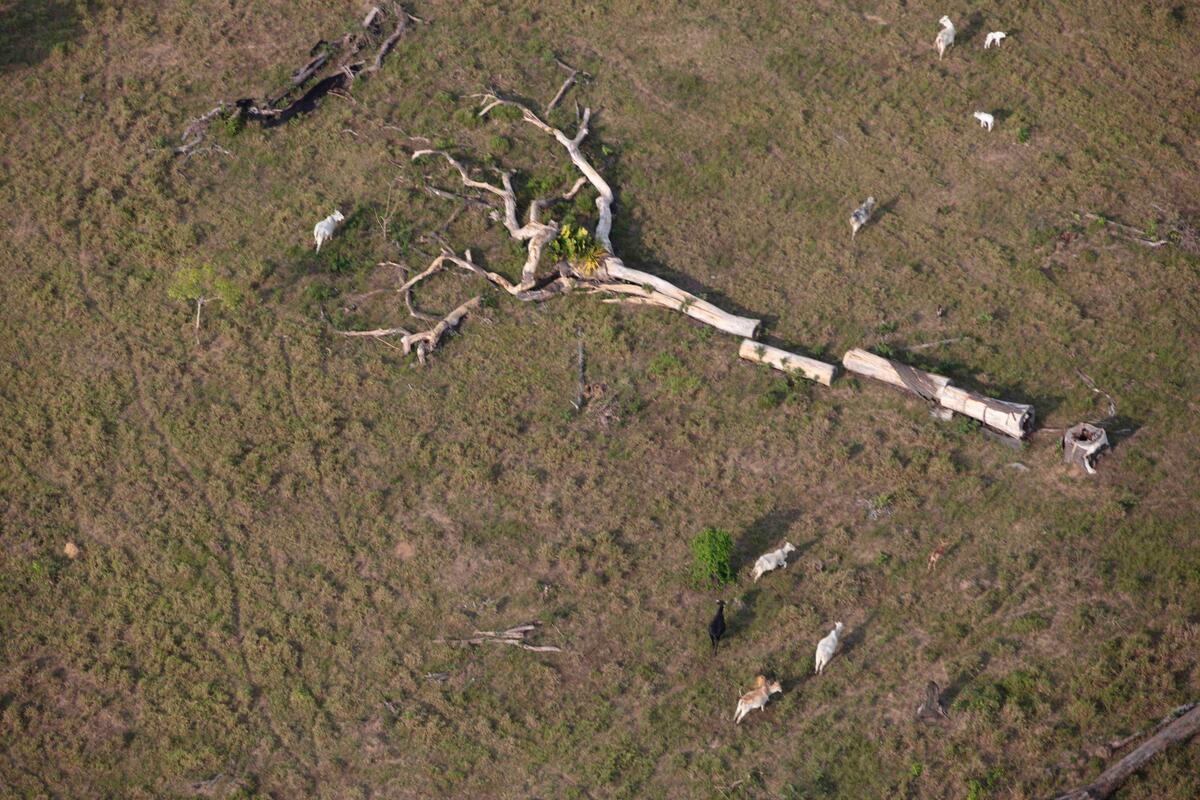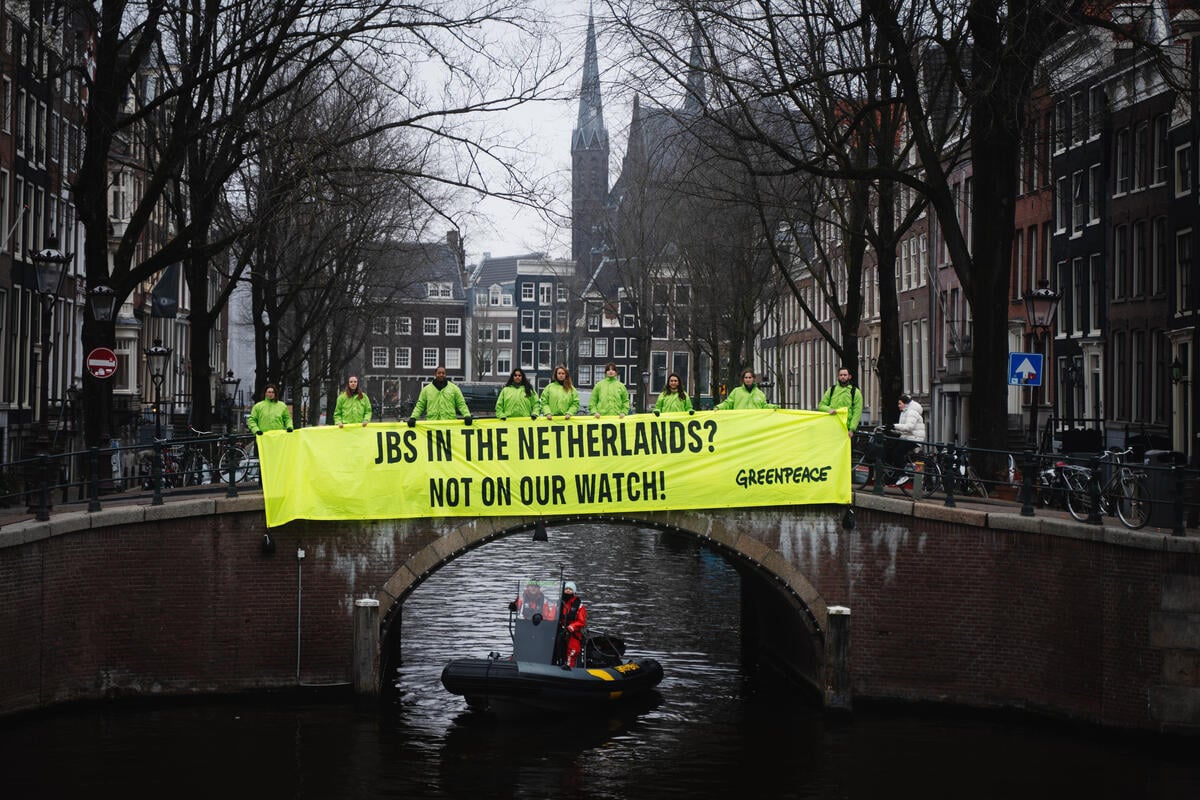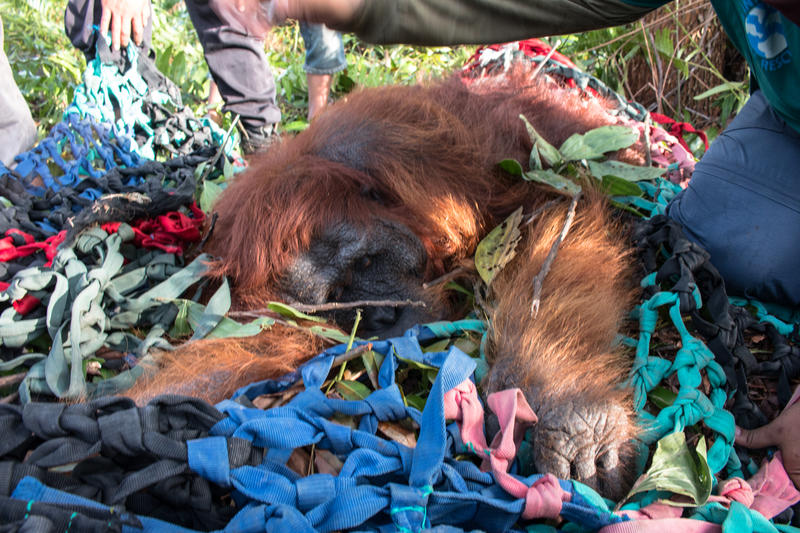
International Animal Rescue (IAR) rescues an Orangutan in West Kalimantan.
The hot, stinging sun beat down on us as we travelled deeper into Ketapang province, Indonesia. As far as the eyes could see, there was only green.
We passed through villages and rice paddies: rice farming is the main livelihood for most communities in the area. Along with Greenpeace friends and volunteers, we were on our way to the Sungai Putri forest. At over 57,000 hectares, it’s the size of Ibiza, and it’s also where we expected to find a logging company called PT Mohairson Pawan Khatulistiwa (PT MPK).
Before reaching the peatland site, we stopped at International Animal Rescue’s orangutan rehabilitation centre. With industrial activity on the rise in the forests and peatlands of Ketapang, orangutans are being driven to the edge of extinction due to habitat loss.
Our friends at IAR rescue orangutans that have lost their homes and help the animals return to the wild. Unfortunately, some orangutans can’t be re-released and need special care because they suffer from paralysis from severe burns or other long-term conditions. Sungai Putri is home to about 900 to 1,200 orangutans, the third largest orangutan population in West Kalimantan. Peatland is not the only reason Sungai Putri needs protecting.
As we continued into the forest, we took a long boat ride through peat swamps to reach the part of the forest known as the Sungai Putri forest. We saw so many different kinds of native birds on our journey, and heard the sounds of orangutans and bekantans – another ape with a distinctive long nose. On land, almost no sunlight breaks through the dense forest canopy making the forest floor quite dark. Dark, but full of life.
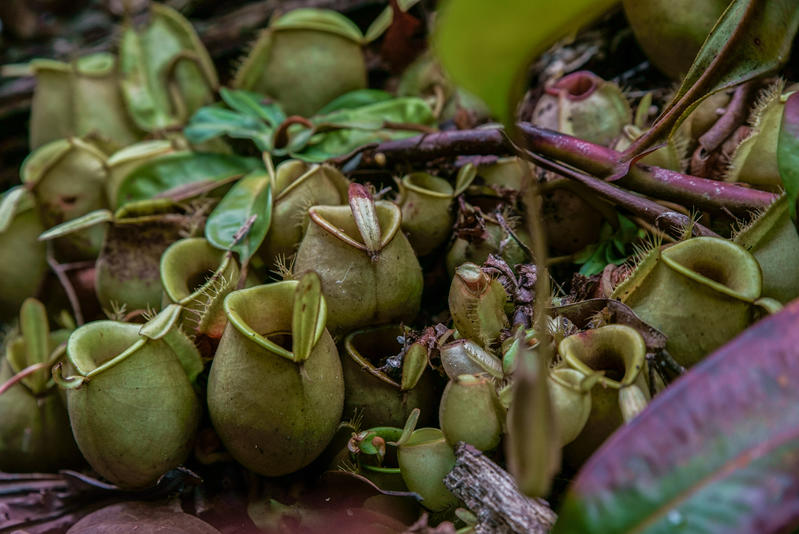
Tropical pitcher plants in Sungai Putri, Ketapang, West Kalimantan.
Finally, we re-joined the dusty main road leading us to the mouth of Sungai Putri, where we expected to find construction.
After half an hour on this road, surrounded by large trucks, we could clearly see one of the canals. It ran wide and as far as the eye could see. There was construction activity taking place on the canal’s edge; excavators were laying building foundations. Our driver had a chat with the workers and they told him that the building work was for an MPK office: if correct, the activity clearly violates sanctions imposed against MPK by the Ministry of Environment and Forestry in 2017.
The sanctions were introduced last year after the Ministry discovered that MPK was opening up canals in a protected area. With a depth of up to 5 times the legal limit, Sungai Putri should never have been open to this activity.
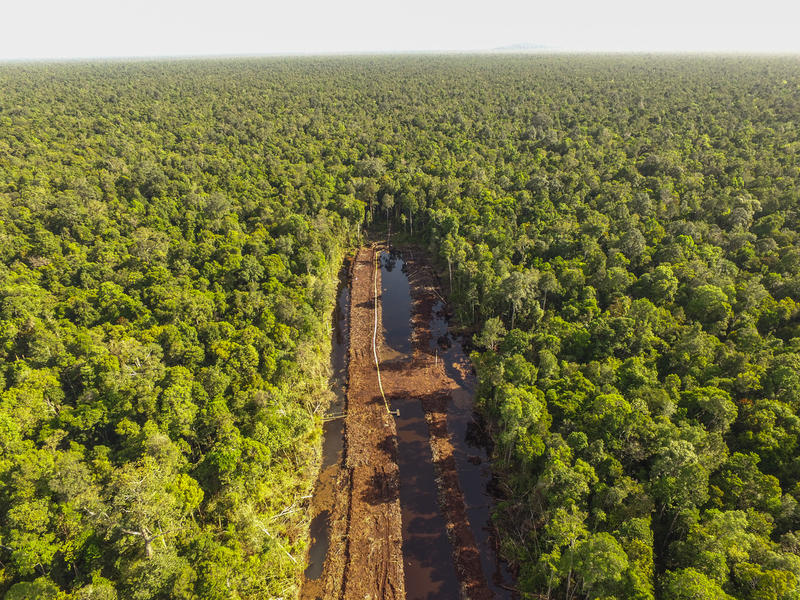
A drone image shows a canal in Sungai Putri, Ketapang regency, West Kalimantan.
Digging canals in a carbon rich peatland area causes it to dry out, making it easier for it to catch fire during the dry season. The government cracked down on this issue after 2015, when massive forest fires in Indonesia forced people to flee their homes. Schools were shut down and hospitals were overwhelmed with suffocating patients.
Building canals means draining the peatland, and peatland drainage is the main factor causing forest fires in Indonesia. If we don’t want anything like the tragedy of 2015 to take place again, the peatland has to be kept wet to protect the land from burning.
Opening up canals in this area also impacts the livelihoods of nearby communities. The peatland plays an important role in the community’s rice paddies, supporting water catchment and preventing the rice paddies from over-flooding.
Our forests are our future. Not only will orangutans lose their homes and habitat if they disappear, but human life will also be threatened. Forests are the source for our lives. Community and government have to stand shoulder to shoulder in the effort to save Indonesia’s forests. Will you join us?
Ratri Kusumohartono is a forest campaigner at Greenpeace Indonesia

